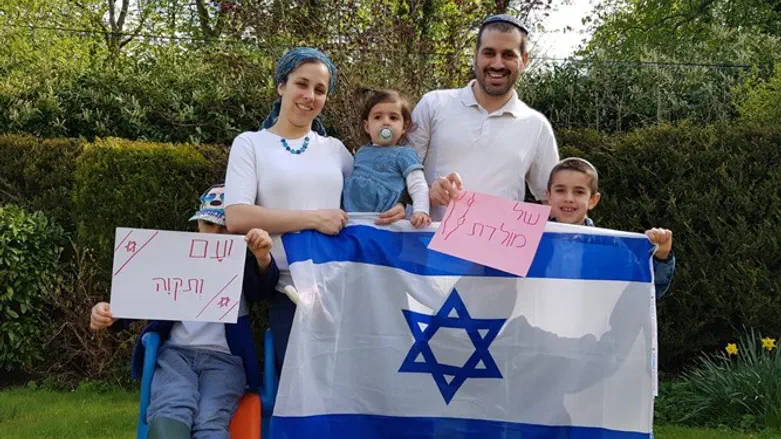
Even as a young child, I can vividly remember Yom Ha'atzmaut (Israeli Independence Day) as the highlight of the year.
The day begins even before it begins- with those hours of transition between Yom Hazikaron (Israel's Memorial Day for fallen soldiers and victims of terror) and Yom Ha'atzmaut. There is a certain feeling of uncertainty in those hours which are defined by both the mourning of our national Memorial Day, but knowing that the celebrations are just ahead. That’s a dynamic that is unique to Israel, but one that also provides us with a special type of national pride; that these losses, as terrible as they are, were for a very specific purpose.
The day itself is a day where everything is about being an Israeli. The divisions which all too often divide us – political and social – are put aside, at least for this one day. We are all citizens of this country and we can all celebrate around that reality.
Those memories will stay with me for life but are perhaps more poignant in the past couple of years spent abroad as part of my family’s role as emissaries with Ohr Torah Stone’s Straus-Amiel Program.
Here in Scotland, planning for Yom Ha'atzmaut begins almost immediately after Hanukkah. As an Israeli where everything seems to fall into place at the last minute, to plan that far in advance feels a bit strange, but it is clear that here they think of every last detail - so early planning is that much more important.
As shlichim (emissaries), we know that the dynamic that we attach to Yom Ha'atzmaut is slightly different for those who do not yet call Israel home. Whereas back home the spontaneity of the day comes from the direct emotional attachment that we have because we grew up there, the careful planning across the ocean is likely in large part related to the physical – and emotional – distances that separate us.
While the community here is filled with Zionists who love Israel, they share that passion with the fact that they are also caring citizens of another country.
It’s therefore incredible to watch fellow Jews around the globe - in my case here in Glasgow - remind themselves that their real roots lie somewhere else. They know that Israel is where they direct their prayers and that this is the Jewish homeland.
I feel that being able to witness their perspective on Israel has been incredibly rewarding. It has both increased my personal love for my homeland but also reminded me of the love that exists in the Diaspora. They know that their physical separation requires that they find new ways to connect – ways that require early planning and a great deal of getting down to details – but which are no less meaningful.
This Yom Ha'atzmaut, we deserve to remember that love for Israel, true Zionism, is not defined by national borders. Both the Jews living within Israel and those all across the Diaspora are able to raise our blue-and-white flag in true pride and thank G-d for making this modern miraculous wonder possible.
This year, I have even greater pride in my land. From my vantage point here in Scotland, I am all the prouder of the remarkable successes that Israel has achieved and will be blessed to continue to achieve in fighting coronavirus – because I know that other parts of the world are still lagging behind, including our own community, where I am still unable to see many people face-to-face.
If I could speak on behalf of Diaspora Jewry, but certainly on behalf of the community of emissaries all around the world, my prayer is that those remarkable successes that Israel is enjoying in this “exodus” from coronavirus will be seen all across the globe. My prayer is that our community centers will open wide and that these centers of Jewish pride and unity will be able to again serve those purposes again very soon.
Until that time, we all look forward to rejoicing in Israel’s independence- each in our own special ways.
Hodaya Lemberger and her husband Aharon are shlichim from Ohr Torah Stone’s Straus-Amiel Emissary Training and Placement Program, working on behalf of the UJC and WZO in Glasgow, Scotland.